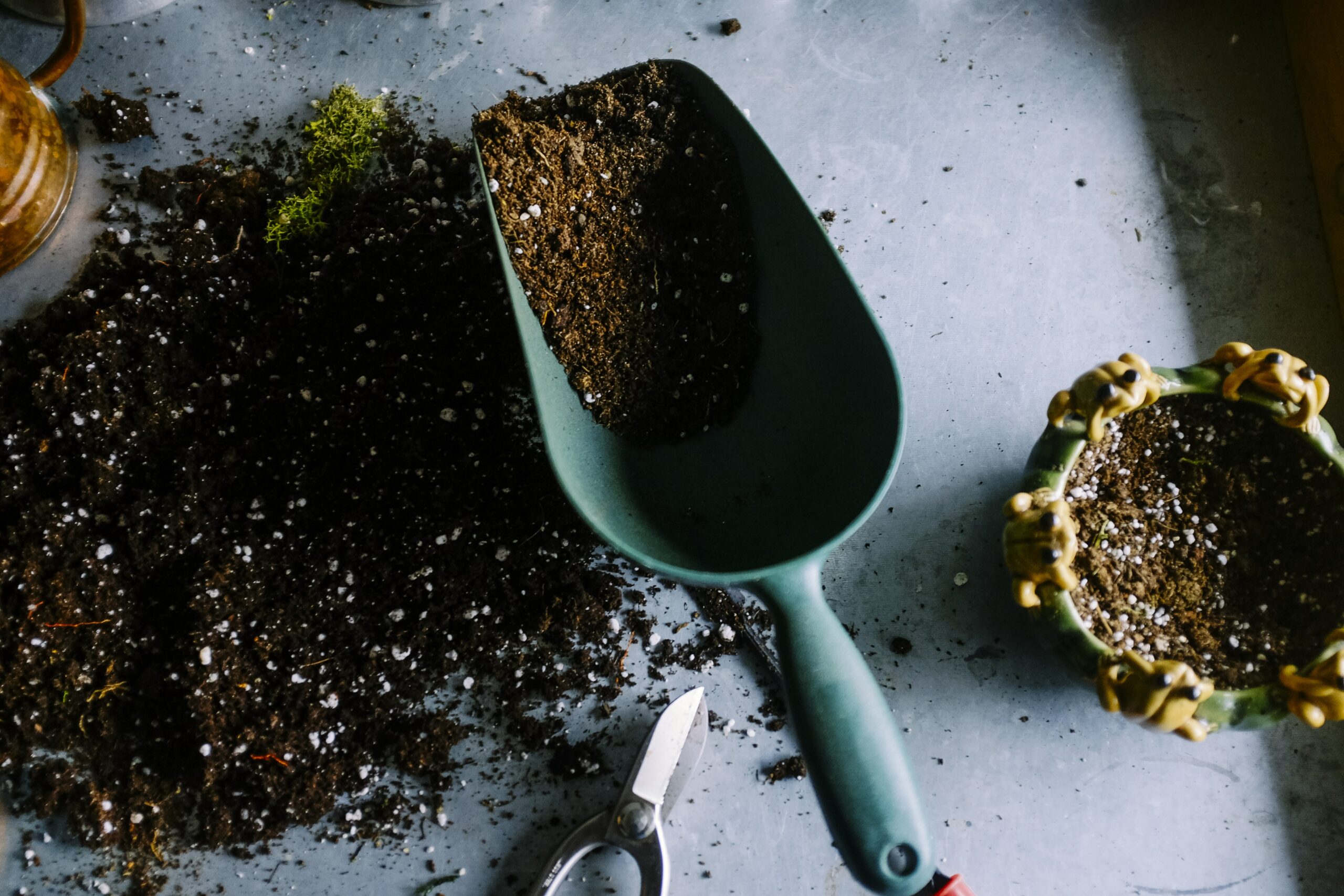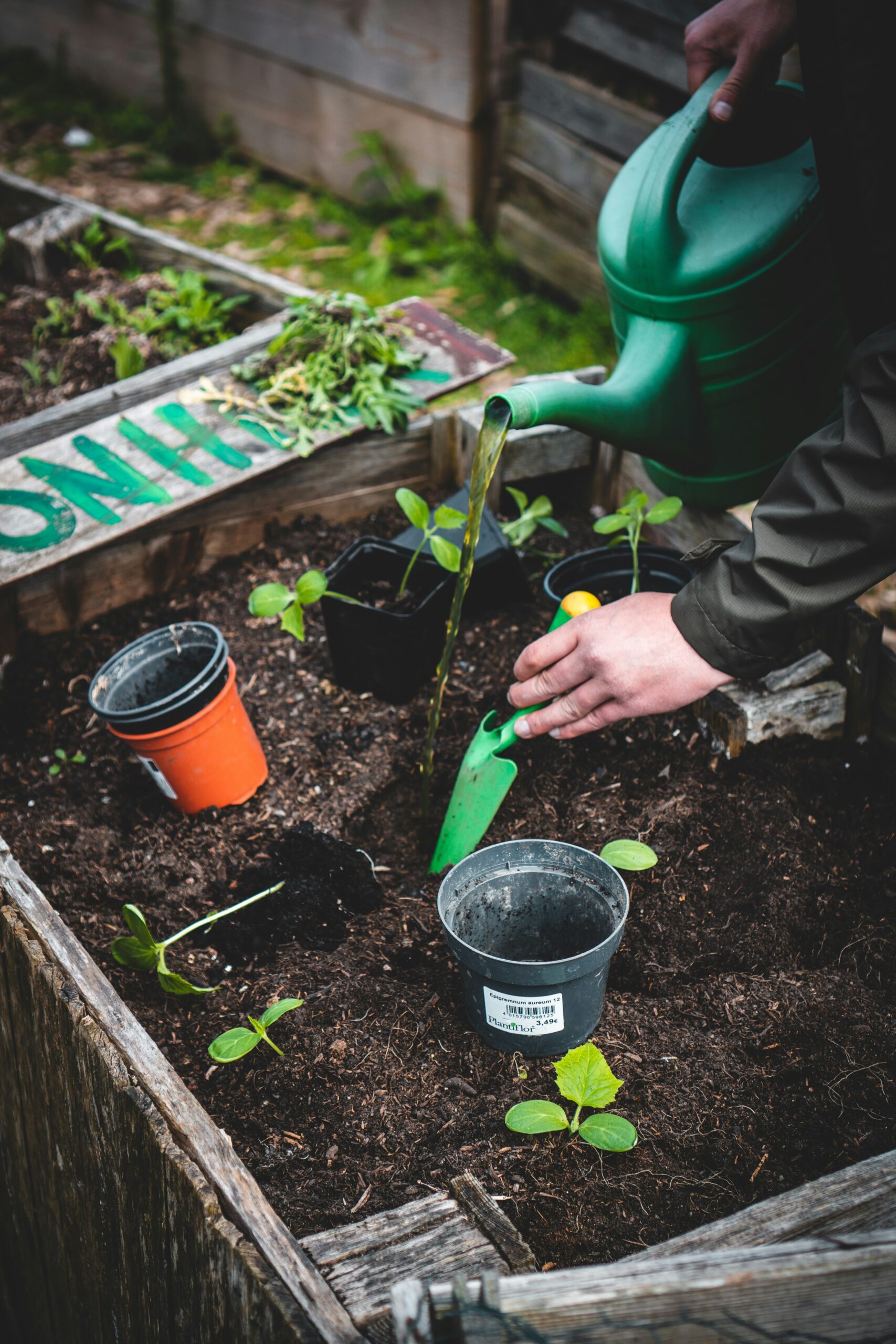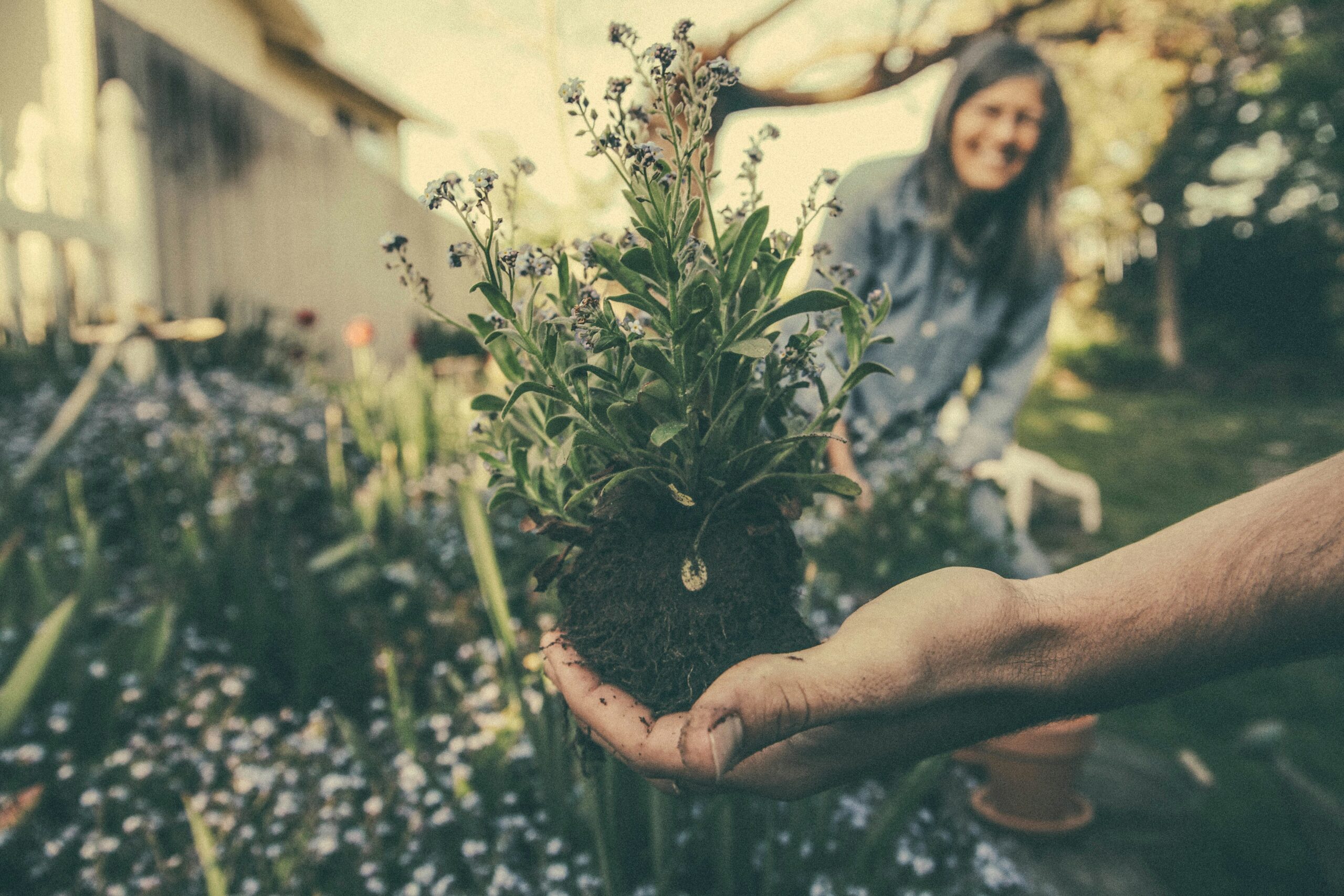Are you feeling overwhelmed and stressed out? Well, it turns out that a solution may be right in your backyard. In this article, we will explore the incredible impact of gardening in reducing stress levels. Discover how immersing yourself in the beauty of nature and getting your hands dirty can be a therapeutic and soothing experience. Get ready to uncover the secrets behind why gardening has become a popular method for finding calmness and serenity in our hectic lives. So grab your gardening gloves, step outside, and let’s explore the world of relaxation through the wonders of gardening.
Mindfulness and Relaxation
Connecting with Nature
Gardening is a wonderful way to connect with nature and reap the benefits of being in the great outdoors. When you immerse yourself in the sights, sounds, and smells of nature, you become more present and in tune with the world around you. The gentle rustling of leaves, the vibrant colors of flowers, and the earthy aroma of soil all contribute to a calming environment that helps you relax and unwind.
Engaging all Senses
Gardening allows you to engage all your senses, creating a truly immersive experience. You feel the soil beneath your fingertips, breathe in the fresh air, hear the chirping of birds, and even taste the fruits and vegetables you grow. By using all your senses, you become fully present in the moment, leaving no room for worries or stress to occupy your mind.
Focusing on the Present Moment
One of the cornerstones of mindfulness is focusing on the present moment. When you garden, you naturally become absorbed in the task at hand. Whether you are planting seeds, pruning plants, or watering your garden, you are fully engaged in the activity, leaving no mental space for stress or anxieties. This present-moment awareness helps to calm your mind and promote relaxation.
Physical Activity and Exercise
Low-Impact Exercise
Engaging in gardening activities provides a low-impact form of exercise that is suitable for people of all ages and fitness levels. Tasks such as digging, weeding, and planting require physical movements that get your heart rate up and help to improve cardiovascular health. Even simple activities like walking around your garden while tending to your plants can contribute to maintaining a healthy level of physical activity.
Improvement of Stamina and Flexibility
Regular gardening promotes the improvement of stamina and flexibility. Tasks such as bending, stretching, and lifting help to increase muscle strength and joint flexibility. Over time, these physical improvements can have a positive impact on your overall well-being, allowing you to engage in other physical activities more easily.
Release of Endorphins
When you engage in physical activities like gardening, your brain releases endorphins, the feel-good chemicals that help boost your mood and reduce stress. Endorphins have a natural calming effect on the body, which can help relieve symptoms of anxiety and depression. So, not only does gardening provide the physical benefits of exercise, but it also offers a natural way to improve your emotional well-being.

Sense of Achievement
Watching Plants Grow and Thrive
There is a sense of achievement that comes from watching your plants grow and thrive under your care. Seeing the tiny seeds you planted sprout into beautiful plants or witnessing the first fruits or flowers bloom can bring a great sense of satisfaction. This sense of accomplishment boosts your self-esteem and provides a positive focus in your life.
Harvesting Fruits and Vegetables
There is nothing quite as rewarding as harvesting the fruits and vegetables you have nurtured and cared for. The joy of plucking a ripe tomato from the vine or picking a basket of fresh strawberries is unparalleled. Not only do you get to enjoy the delicious flavors of your homegrown produce, but you can also take pride in the fact that you have provided nourishment for yourself and your loved ones.
Creating a Beautiful Outdoor Space
Whether you have a small balcony garden or a sprawling backyard, gardening allows you to create a beautiful outdoor space that reflects your personal style and brings you joy. Designing and transforming your garden into a peaceful sanctuary or a colorful oasis allows you to exercise your creative skills and fosters a sense of pride. The visual aesthetics of a well-maintained garden provide an instant mood-lifter and can be a source of inspiration and tranquility.
Connection with Others
Joining Gardening Communities
Gardening can be a highly social activity when you join gardening communities or clubs. These communities provide opportunities to meet like-minded individuals who share your passion for plants and gardening. Interacting with fellow gardeners allows you to exchange tips, gain valuable insights, and learn from their experiences. The sense of camaraderie and belonging fostered in these communities can greatly enhance your gardening journey and provide a support system.
Sharing Tips and Experiences
Gardening is often passed down through generations, with valuable knowledge and expertise being shared among family, friends, and neighbors. By sharing your gardening tips and experiences, you not only help others grow their own gardens but also create a sense of connection and community. The act of sharing fosters new relationships and strengthens existing ones, bringing people together through a shared love for nature and gardening.
Bonding with Family and Friends
Gardening offers a unique opportunity to bond with family and friends. Working together on garden projects, tending to plants, and enjoying the fruits of your labor creates lasting memories and strengthens relationships. Sharing the responsibility of caring for plants instills a sense of teamwork and teaches valuable life skills to children. Gardening becomes a shared hobby that bridges generational gaps and brings loved ones closer.

Stress Reduction through Gardening Tasks
Pruning and Weeding
The repetitive nature of tasks like pruning and weeding has a soothing effect on the mind. These activities require focus and attention to detail, which helps divert your thoughts from stressors and worries. As you trim away dead or overgrown branches or remove unwanted weeds, you experience a sense of control and achievement that contributes to stress reduction.
Planting and Transplanting
The act of planting or transplanting seedlings can be a mindful and calming task. The gentle handling of delicate plants, the careful selection of the right soil and location, and the anticipation of growth all contribute to a sense of purpose and tranquility. As you nourish young plants and witness their journey into maturity, you experience a sense of nurturing and the rewards of patience.
Watering and Nurturing
The act of watering and nurturing your garden is a therapeutic practice that allows you to slow down and focus on the task at hand. As you gently shower your plants with water, you become immersed in the present moment, leaving behind stress and distractions. Nurturing your garden provides a sense of purpose and responsibility, as you act as a caretaker for living organisms, promoting their growth and well-being.
Therapeutic Effects of Nature
Decreased Blood Pressure and Heart Rate
Being in nature, including spending time in your garden, has been shown to have a positive impact on blood pressure and heart rate. The calm and serene environment of a garden helps to reduce stress levels, promoting healthy heart function and supporting overall cardiovascular health. Simply spending time surrounded by nature can have a restorative effect on the body, allowing you to unwind and relax.
Improved Immune Function
Spending time outdoors, especially in natural environments like gardens, can have a positive effect on immune function. The fresh air and exposure to a diverse range of microbes and beneficial bacteria in the soil help to boost your immune system’s resilience and overall health. Regular gardening can offer you the added benefit of strengthening your body’s defense mechanisms, improving your overall well-being.
Enhanced Emotional Well-being
Nature has a profound impact on our emotional well-being, and gardening allows us to immerse ourselves in the therapeutic effects of the natural world. The sights, sounds, and smells of a garden have a calming and uplifting effect on our mood, reducing symptoms of anxiety and depression. The connection with nature and the act of nurturing living plants create a sense of purpose, fulfillment, and joy that contribute to enhanced emotional well-being.

Sense of Purpose and Responsibility
Caring for Living Organisms
Gardening instills a sense of purpose and responsibility as you care for living organisms. Being entrusted with the task of nourishing and sustaining the growth of plants promotes a deeper connection with nature and the environment. The act of gardening creates a sense of fulfillment and meaning, as you witness the impact of your efforts and contribute to the well-being of the natural world.
Contributing to Environmental Sustainability
In today’s world, promoting environmental sustainability is of utmost importance. By engaging in gardening practices such as composting, recycling water, and using organic methods, you actively contribute to the preservation of the environment. The cultivation of your garden encourages a more sustainable lifestyle and aligns with efforts to protect and conserve the planet for future generations.
Promoting Biodiversity
Gardens can serve as havens for various forms of life, promoting biodiversity in your immediate surroundings. By creating a conducive environment for pollinators, birds, and other wildlife, you support the delicate balance of ecosystems. The plants you choose, the structures you build, and the sustainable practices you adopt in your garden all play a role in maintaining the diversity and abundance of life.
Natural Anti-Depressant
Boosting Mood and Happiness
Gardening is a natural mood-booster. The act of tending to your garden and witnessing the growth and beauty of your plants triggers the release of endorphins, serotonin, and dopamine in your brain, which are known to elevate mood and promote feelings of happiness. The colors, scents, and textures of your garden create a sensory experience that uplifts your spirits and brings joy to your day.
Reducing Symptoms of Anxiety and Depression
Engaging in gardening has been found to reduce symptoms of anxiety and depression. The physical activity, connection with nature, and the sense of accomplishment all contribute to alleviating these mental health conditions. The peace and tranquility of being in your garden allow you to temporarily detach from the pressures of daily life and find solace in the nurturing environment you have created.
Alleviating Seasonal Affective Disorder
Seasonal Affective Disorder (SAD) is a type of depression that occurs during the winter months when sunlight is limited. Gardening provides a source of natural light exposure and allows you to connect with the outdoor environment even during colder seasons. The act of gardening and spending time in your garden can alleviate symptoms of SAD and improve your overall well-being, making it an effective natural remedy.
Stress Relief in Urban Environments
Creating a Green Oasis in the City
Living in urban environments can be bustling and overwhelming at times. However, gardening allows you to create a haven of greenery and serenity right in the midst of the city. By transforming your balcony, rooftop, or even a small corner of your home into a lush garden, you create a calming retreat from the hustle and bustle of urban life. The presence of plants and the soothing sounds of nature bring a sense of peace and tranquility to your surroundings.
Escape from Technological Overload
In the modern world, we are often bombarded with technology and constant connectivity. Gardening provides a welcome respite from this constant stream of information and screens. As you engage in gardening tasks, you step away from technology and immerse yourself in the simplicity of nature. This break from technological overload allows your mind to recharge and finds solace in the natural world.
Restoring Mental Fatigue
Urban environments can be mentally exhausting, with noise, pollution, and the fast pace of life taking a toll on our mental well-being. Gardening offers an opportunity to restore mental fatigue by creating moments of stillness and calmness. The meditative nature of gardening tasks and the therapeutic benefits of being surrounded by nature alleviate mental fatigue and provide a much-needed break for the mind.
Therapeutic Benefits for Different Age Groups
Stress Management for Adults
Adults often face numerous stressors in their daily lives, from work pressures to family responsibilities. Gardening provides adults with an effective outlet for stress management. The physical activity involved in gardening helps to reduce stress hormones, while the calming effects of nature and the sense of accomplishment provide mental relaxation. Engaging in gardening activities allows adults to recharge, find solace, and maintain their overall well-being.
Emotional Development for Children
Gardening is a valuable tool for the emotional development of children. Through gardening, children learn important life skills such as responsibility, patience, and nurturing. They develop a sense of connection with the natural world and gain an understanding of the importance of caring for living organisms. Gardening also encourages creativity and problem-solving as children experiment with plant combinations and learn to adapt to various growing conditions. The therapeutic benefits of nature foster emotional well-being and provide a healthy outlet for children to express themselves.
Cognitive Enhancement for Seniors
Engaging in gardening activities has been shown to have cognitive benefits, particularly for seniors. The physical activity involved in gardening helps to improve blood flow and oxygenation to the brain, enhancing cognitive function. Gardening tasks that require problem-solving and planning, such as plant selection and garden design, stimulate the brain and contribute to mental sharpness. Moreover, the sense of purpose and connection with nature that gardening provides have a positive impact on mental well-being and can help reduce the risk of cognitive decline in seniors.
In conclusion, gardening offers a multitude of benefits for reducing stress and promoting overall well-being. From the mindfulness and relaxation gained through connecting with nature and focusing on the present moment to the physical activity and exercise that improve stamina and flexibility, gardening proves to be a therapeutic and rewarding activity. The sense of achievement derived from watching plants grow, the connection with others, and the therapeutic effects of nature add to the profound impact gardening can have on reducing stress. Additionally, the sense of purpose, responsibility, and the natural anti-depressant qualities of gardening contribute to emotional well-being and provide relief from stress in urban environments. Regardless of age, gardening has therapeutic benefits that aid in stress management, emotional development, and cognitive enhancement. So, grab your gardening tools and immerse yourself in the wonders of nature – your journey to a stress-free, fulfilling life awaits!





